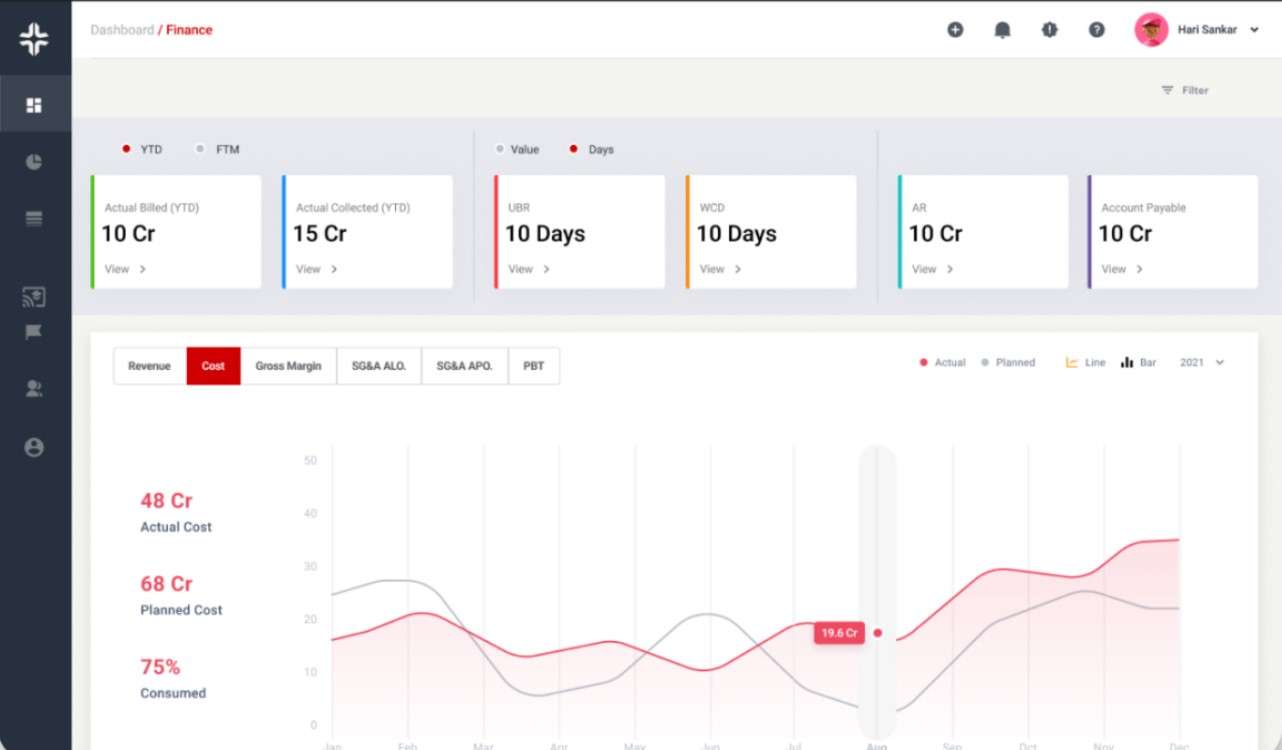Home » PSApedia
Gross revenue
Maximize your business potential with accurate insights into Gross Revenue. Optimize financial strategies and drive profitability.

What Is Gross Revenue?
Gross Revenue represents the total income earned by a company from its primary activities before deducting any expenses. It encompasses all sales or revenue generated from selling goods or services, providing a fundamental indicator of a company’s top-line financial performance.
In Professional Service Automation (PSA), Gross Revenue refers to the total amount of income generated from the firm’s services before any deductions like costs or expenses. It represents the overall financial performance from service delivery.
Importance of Gross Revenue
Gross Revenue holds significant importance as it reflects the total sales volume or income generated by a business. It serves as a starting point for financial analysis, providing insights into a company’s ability to generate revenue from its core operations.
1. Financial Health Indicator: Serves as a primary gauge of the firm’s financial health and market performance.
2. Business Growth Assessment: Reflects the ability of the firm to generate income and grow its business.
3. Strategic Decision-Making: Informs strategic decisions related to expansion, investment, and resource allocation.

Importance of Gross Revenue
How to calculate Gross Revenue?
Gross Revenue is calculated by summing up all the revenue from services provided. This includes all client payments, retainer fees, and other income related to professional services rendered.
The formula to calculate Gross Revenue is straightforward:
Gross Revenue = Quantity of Units Sold × Price per Unit
- Quantity of Units Sold refers to the total number of goods or services sold within a specific period.
- Price per Unit signifies the selling price of each unit of product or service.
Example:
Suppose a company sells 1,000 units of a product at $50 each. The calculation for Gross Revenue would be:
Gross Revenue=1,000 units×$50=$50,000
Hence, the Gross Revenue for this scenario would be $50,000.
Gross Revenue vs Net Revenue
While Gross Revenue is the total income generated before any expenses are deducted, Net Revenue is the revenue remaining after discounts, refunds, and allowances are deducted from Gross Revenue. Net Revenue reflects a company’s actual income from its operational activity.
1. Net Revenue: While gross revenue is the total income, net revenue is the profit remaining after all expenses, taxes, and costs have been subtracted.
2. Profitability Analysis: Gross revenue shows overall income potential, whereas net revenue gives a clearer picture of profitability.
| Metric | Definition | Importance / Use |
|---|---|---|
| Gross Revenue | Total income generated before deducting any expenses | Indicates the overall financial scale and total sales or income |
| Net Revenue | Revenue after deducting discounts, returns, and allowances | Reflects revenue after subtracting certain deductions |
| Operating Income | Profit earned from operations after deducting operating expenses | Measures profit from core business activities after expenses |
| EBITDA | Earnings Before Interest, Taxes, Depreciation, and Amortization | Reflects the operational profitability of a company |
Utilization of Gross Revenue
Analyzing Gross Revenue helps in evaluating sales performance, forecasting future revenue, and setting financial targets. It serves as a basis for various financial ratios and indicators, aiding in comparative analysis across industries or periods.
1. Service Expansion: Expanding the range of services offered to tap into new market segments.
2. Marketing and Sales Efforts: Enhancing marketing strategies and sales efforts to attract more clients.
3. Pricing Strategies: Revising pricing models to optimize income without compromising competitiveness.
Ready to Optimize Your Gross Revenue?
KEBS provides financial management solutions such as revenue tracking and analysis. Businesses can streamline revenue management operations and obtain insights into their financial performance by employing KEBS.
Using KEBS CRM systems to manage client relationships effectively and drive sales. Utilizing KEBS financial tools for better revenue tracking and financial planning. Leveraging KEBS analytics to inform strategic decisions for revenue enhancement.

KEBS Finance Management
For a detailed exploration of how KEBS can support your efforts in increasing gross revenue, contact us or request a demo.



